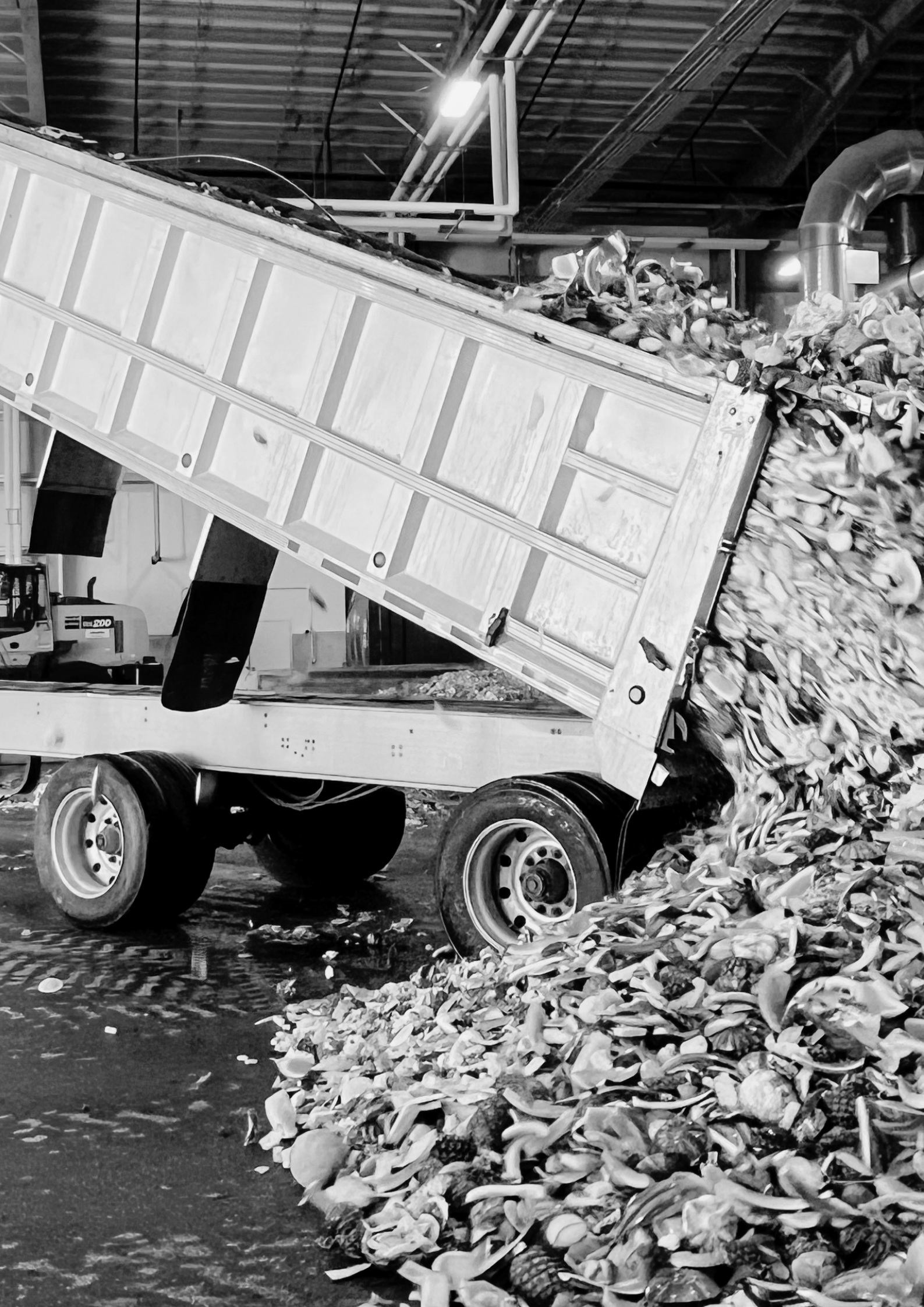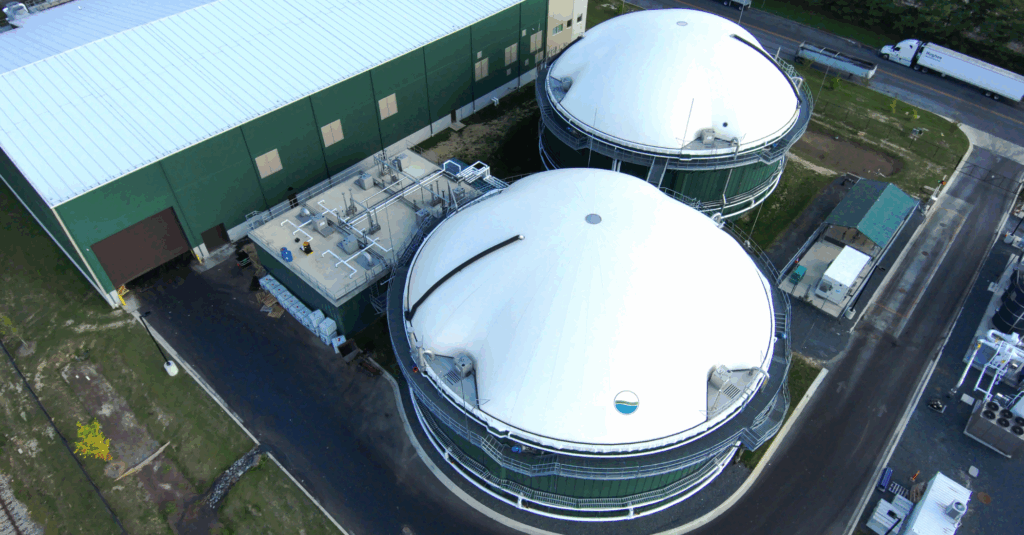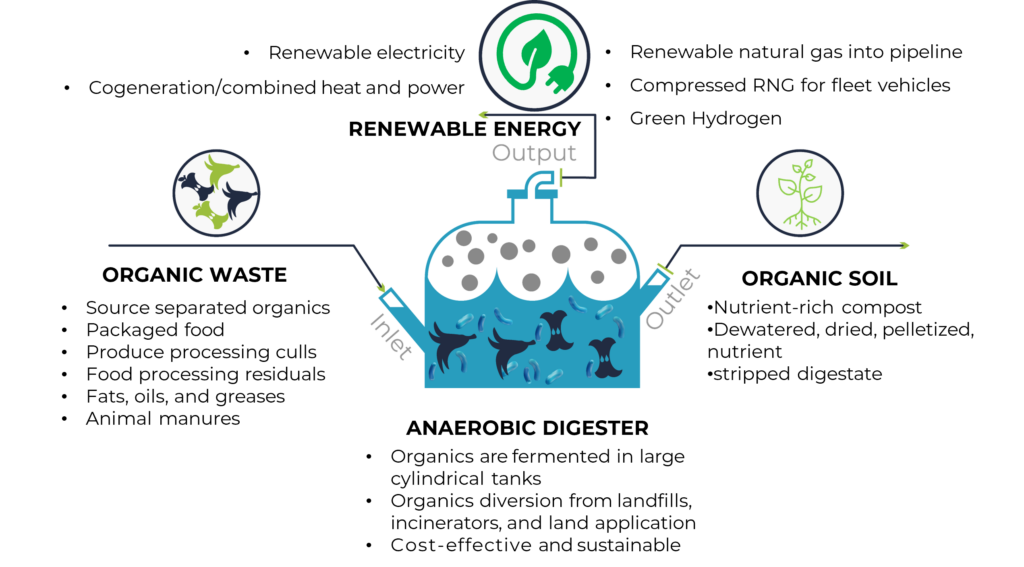Commercial Food Waste Disposal Maryland & Mid-Atlantic
Food manufacturing waste, processing residuals, and organics disposal for distributors, processors, and manufacturers. Save up to 45% versus landfill costs.
Commercial Food Waste Disposal That Cuts Costs
The Maryland Bioenergy Center processes loose organic waste, food manufacturing waste, and food processing residuals from distributors, processors, and manufacturers across Maryland, DC, and the Mid-Atlantic. Save up to 45% versus landfill disposal costs.
Serving Food Facilities Across the Mid-Atlantic
Located in Jessup, Maryland, we serve food manufacturers, distributors, processors, and commercial facilities throughout MD, DC, VA, NJ, PA and parts of NY. Our facility handles over 110,000 tons annually of loose organic waste and liquid food residuals.
We Accept:
Food manufacturing waste and processing byproducts
Produce waste and organics disposal from distribution centers
Restaurant grease and cooking oil
Sugar, bakery waste, and mixed grocery items
Vegetable waste and food processing residuals
If you have packaged and/or palletized food for disposal, we have you covered at the Maryland Organics Recovery Center.
Why Choose
The Maryland Bioenergy Center
- Lower Disposal Costs: Save up to 45% compared to landfill tipping fees
- Large Capacity: Processes 110,000 tons/year – reliable partner for high-volume generators
- Liquid & Solid Waste: Handles food processing residuals, grease, oils, and mixed organics
- No Minimum Loads: Flexible scheduling for ongoing contracts or one-time disposal needs
- Proven Expertise: 25+ years operating organics processing facilities worldwide
- Fast Turnaround: Quick processing for distribution centers and food manufacturers


The Facility at a Glance
Maryland Bioenergy Center (MBC) is Maryland’s premier organics recycling facility, centrally located in Jessup. Serving food manufacturers, distributors, institutions, and businesses across the region, our advanced anaerobic digestion facility diverts over 110,000 tons of food waste annually from landfills and incinerators.
We convert this organic waste into 340,000 MMBtu of renewable natural gas each year, enough energy to power over 7,600 homes. In doing so, we reduce greenhouse gas emissions equivalent to taking more than 12,500 gasoline-powered cars off the road annually, while also producing nutrient-rich digestate for agriculture and landscaping.
This results in an average partner savings of $50 per ton in disposal fees, making recycling food waste at MBC both a financial and environmental win.

A Sustainable Solution
Our closed-loop anaerobic digestion process transforms source-separated organics, packaged food waste, and food processing residuals into pipeline-quality renewable natural gas. This sustainable energy source integrates seamlessly with existing infrastructure, supporting local energy independence and security.
The anaerobic digestion process also produces a nutrient-rich soil amendment, offering an eco-friendly alternative to synthetic fertilizers for agriculture and land restoration. By prioritizing landfill diversion and odor control through advanced technology, we help our communities reduce pollution, preserve air and water quality, and promote long-term environmental stewardship.
Ready to Reduce Your Food Waste Disposal Costs?
Contact our team for pricing on food manufacturing waste, processing byproducts, and commercial organics disposal in Maryland and the Mid-Atlantic.